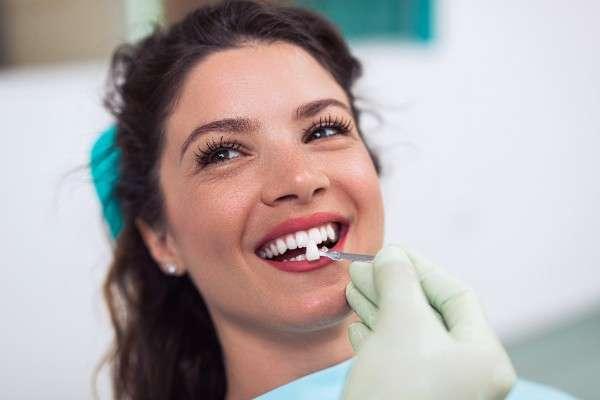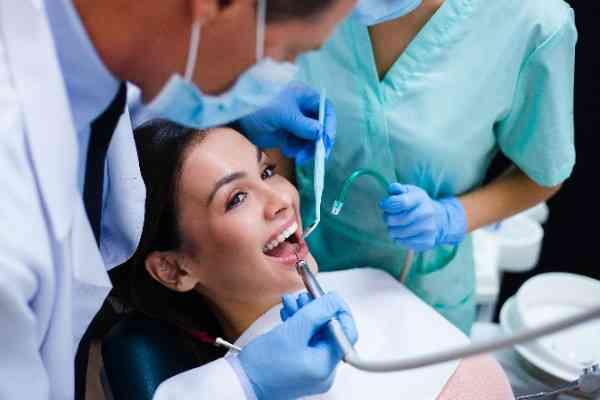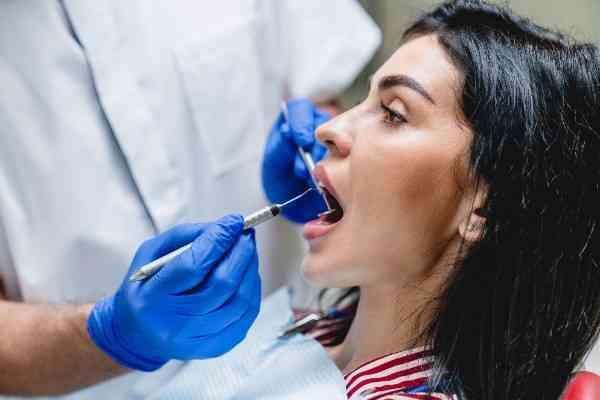Comprehensive Dental Care That Puts Your Health First

Oral health is a cornerstone of overall wellbeing, yet it’s often overlooked until problems arise. Comprehensive dental care, however, focuses on prevention, education, and early intervention to maintain a healthy mouth and body connection. This type of care goes beyond routine check-ups — it integrates restorative, cosmetic, and preventive dentistry to safeguard not only your smile but your general health too.
In this post, we’ll explore why comprehensive dental care matters, what it includes, and how maintaining your oral hygiene can positively affect your overall health and confidence.
Understanding Comprehensive Dental Care
Comprehensive dental care refers to a full-spectrum approach to oral health that prioritises prevention, early detection, and patient education. Rather than treating issues as they arise, it aims to prevent them altogether through regular assessments, cleaning, and lifestyle advice.
This approach typically includes:
- Routine examinations to identify early signs of decay, gum disease, or oral cancer.
- Professional cleaning to remove plaque and tartar that regular brushing cannot.
- Diagnostic imaging for accurate detection of issues below the gum line.
- Restorative treatments, such as fillings, crowns, and root canals, when necessary.
- Oral hygiene education to encourage better daily care habits.
Comprehensive care also takes into account your overall health. Conditions such as diabetes, heart disease, and osteoporosis can have direct links to oral health, making regular dental visits vital for long-term wellbeing.
The Connection Between Oral and General Health
Your mouth is a window to your body’s health. A range of systemic conditions can be detected first through oral symptoms. For instance, gum disease has been linked to cardiovascular problems, and poor oral hygiene can worsen diabetes.
Bacteria from untreated gum infections can enter the bloodstream, contributing to inflammation and even leading to heart complications. Likewise, nutritional deficiencies or autoimmune disorders often manifest as oral lesions or gum changes.
By maintaining proper oral hygiene and visiting your dentist regularly, you can reduce the risk of such complications and keep your body in better balance.
The Role of Preventive Dentistry
Prevention is the heart of comprehensive dental care. Preventive dentistry helps identify potential issues before they become serious, saving patients time, money, and discomfort.
Regular dental check-ups are crucial for early diagnosis, but what happens between appointments is equally important. Brushing twice daily with fluoride toothpaste, flossing, and maintaining a balanced diet all play a significant role.
However, home care alone cannot eliminate all plaque build-up, which is why professional cleaning is essential. Seeing a hygienist in Newry ensures that your teeth and gums are meticulously cleaned, reducing the risk of cavities and gum disease.
A hygienist not only cleans your teeth but also provides tailored advice on brushing techniques, diet, and lifestyle habits that can enhance your oral hygiene routine. This preventive approach empowers patients to take control of their oral health before minor issues develop into major problems.

Managing Dental Emergencies
Even with the best preventive care, dental emergencies can occur. Accidents, infections, or sudden toothaches can happen unexpectedly, and prompt attention is crucial to prevent further damage or pain.
A chipped tooth, lost filling, or severe infection shouldn’t be ignored. These issues require professional assessment to prevent long-term complications. If you experience sudden pain, swelling, or bleeding, contacting an emergency dentist in Newry can provide immediate relief and preserve your oral health.
Emergency dental services are equipped to handle a wide range of urgent issues, from trauma-related injuries to abscesses and broken crowns. Their quick intervention not only alleviates discomfort but can also prevent the need for more complex and costly treatments in the future.
Cosmetic and Restorative Care: More Than Just Aesthetics
While prevention and emergency management are essential, comprehensive dental care also includes cosmetic and restorative treatments designed to enhance both appearance and function.
Procedures such as fillings, crowns, implants, and veneers restore the integrity and beauty of teeth that have been damaged or lost. Although these treatments often improve aesthetics, they also play a vital role in maintaining proper bite alignment and chewing function.
A confident smile can have a remarkable impact on self-esteem and overall mental health. Therefore, modern dental care focuses equally on function and appearance, ensuring patients can smile, eat, and speak comfortably.
Patient-Centred Dental Care
The most successful dental practices adopt a patient-centred approach. This means tailoring every treatment plan to the individual’s needs, preferences, and health status. A personalised approach ensures that both short-term and long-term oral health goals are met.
Open communication is key. Your dentist should provide clear explanations, options, and preventive advice during every visit. By involving patients in decision-making, dental care becomes a collaborative process — one that builds trust and fosters consistent, long-term oral health habits.
The Importance of Regular Visits
Consistency is one of the most important aspects of oral healthcare. Regular visits help track your oral health progression and detect any potential problems before they escalate.
Dentists often recommend check-ups every six months, though the frequency can vary based on your health history and lifestyle. Those with gum disease or other chronic conditions may require more frequent visits to maintain stability.
Routine examinations also help detect oral cancer early — a condition that can be life-threatening if left unchecked. Early intervention dramatically improves treatment outcomes, making regular appointments an essential part of preventive healthcare.
Nutrition and Lifestyle Factors
Your diet and daily habits play a major role in oral health. Consuming excessive sugary foods and acidic drinks can erode enamel and increase the risk of decay. On the other hand, a balanced diet rich in calcium, phosphorus, and vitamins helps strengthen teeth and gums.
Smoking and alcohol consumption are two other major factors affecting oral health. Both can lead to gum disease, bad breath, and oral cancer. Reducing or quitting these habits significantly improves dental and general health.
Staying hydrated, especially with water, helps neutralise acids in the mouth and rinse away food particles. Small lifestyle changes can therefore make a substantial difference to your oral wellbeing.
Modern Dental Technology and Comfort
The advancement of dental technology has transformed patient experiences. Modern practices now use digital imaging, intraoral cameras, and laser treatments to provide more accurate, comfortable, and efficient care.
Digital X-rays minimise radiation exposure, while computer-assisted tools ensure precision in treatments such as crowns and implants. Sedation options have also improved, helping patients with dental anxiety undergo procedures with greater ease.
These innovations not only enhance treatment outcomes but also encourage more people to seek regular care without fear or discomfort.

Putting Your Health First
Ultimately, comprehensive dental care is about more than maintaining a beautiful smile — it’s about protecting your long-term health. By combining preventive care, emergency support, and patient education, this holistic approach ensures that every aspect of oral wellbeing is covered.
When you prioritise your dental health, you’re also investing in your confidence, comfort, and quality of life. Whether it’s through routine visits to a hygienist or prompt attention during a dental emergency, every step contributes to a healthier future.
At EDA Group, we believe that your smile deserves the best possible care — because good oral health is the foundation of total wellbeing.

